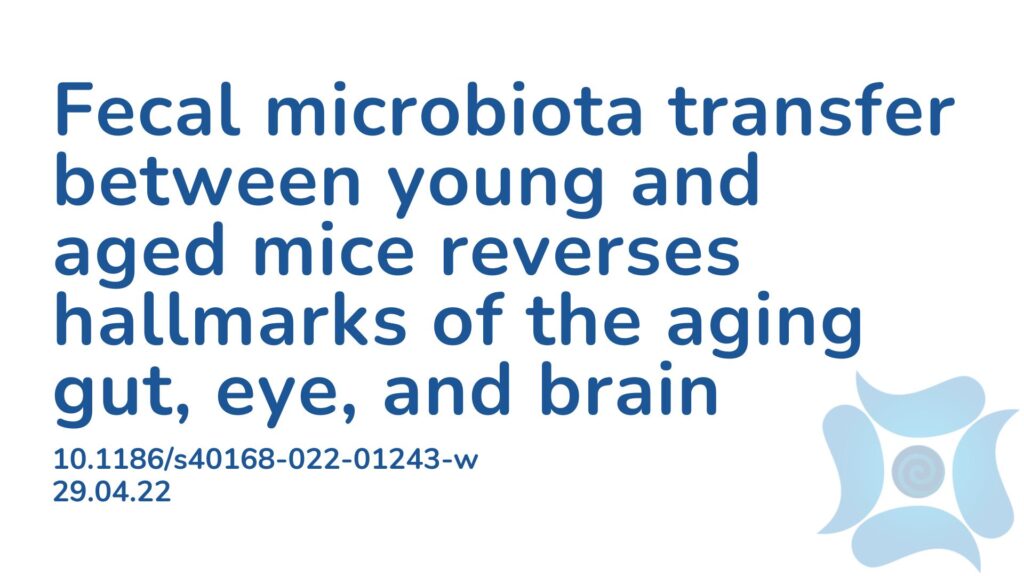Summary: Whilst most products we find on our beauty store shelves are targeted at anti-aging, fecal microbiota transplant (FMT) may seem like an uncommon or unlikely way to support the anti-aging process. However, this study conducted on mice tested the hypothesis that FMTs may influence the development of aging via reducing inflammation affecting the brain and retina. The researchers exchanged the intestinal microbiota of young mice aged 3 months, older mice aged 18 months and aged mice of 24 months. They compared the specific biomarkers of inflammation and function in the eyes and brain, as well as intestinal epithelial barrier integrity and circulating inflammatory markers. Overall, their data indicated that a FMT from young mice leads to an enrichmed microbiota in aged mice. Their data also supports the suggestion that an altered microbiota in old age contributes to intestinal and systemic inflammation. This could therefore mean that targeting the gut as a way to reverse the effects of aging, by modifying and supporting microbial composition to modulate other pathways, may be a potential therapeutic approach to aging and decline.
Abstract:
Background: Altered intestinal microbiota composition in later life is associated with inflammation, declining tissue function, and increased susceptibility to age-associated chronic diseases, including neurodegenerative dementias. Here, we tested the hypothesis that manipulating the intestinal microbiota influences the development of major comorbidities associated with aging and, in particular, inflammation affecting the brain and retina.
Methods: Using fecal microbiota transplantation, we exchanged the intestinal microbiota of young (3 months), old (18 months), and aged (24 months) mice. Whole metagenomic shotgun sequencing and metabolomics were used to develop a custom analysis workflow, to analyze the changes in gut microbiota composition and metabolic potential. Effects of age and microbiota transfer on the gut barrier, retina, and brain were assessed using protein assays, immunohistology, and behavioral testing.
Results: We show that microbiota composition profiles and key species enriched in young or aged mice are successfully transferred by FMT between young and aged mice and that FMT modulates resulting metabolic pathway profiles. The transfer of aged donor microbiota into young mice accelerates age-associated central nervous system (CNS) inflammation, retinal inflammation, and cytokine signaling and promotes loss of key functional protein in the eye, effects which are coincident with increased intestinal barrier permeability. Conversely, these detrimental effects can be reversed by the transfer of young donor microbiota.
Conclusions: These findings demonstrate that the aging gut microbiota drives detrimental changes in the gut–brain and gut–retina axes suggesting that microbial modulation may be of therapeutic benefit in preventing inflammation-related tissue decline in later life.
Article Publication Date: 29.04.22
DOI: 10.1186/s40168-022-01243-w



